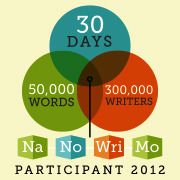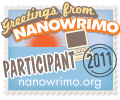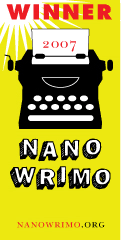I'm a "real" writer, I swear!
There is nothing better for a print-on-demand writer to have in his or her arsenal than the ability to lie creatively. This, you may think, is to fool the potential readers into thinking the novel or story being promoted is The Greatest Story Ever Told. No, my friends. The writer's ability to lie is used, simply told, to get reviewers and other writers to not dismiss the project as one of those self-published books.
You know the ones I mean. The stories so badly written, so incoherent in execution, a mainstream publisher would laugh before tossing the manuscript into the nearest trash receptacle. The books that make you wish you'd never bothered wasting your time when you'd finished reading them. The writing world's equivalent of a straight-to-DVD movie.
And yes, it is appropriate to feel sorry for the poor writers forced to peddle their wares this way.
Or is it?
Print-on-demand publishing is still in it's relative infancy stage, utilized not only by novice writers who haven't been brave enough to send their writings off to big publishing houses, but also by experienced authors who wish to have their older titles remain in print or are jaded by the sometimes daunting experience of working with established publishers.
After hearing tales of books taking years to get to stores, an even longer wait to turn a profit, frequent rejections, advances that don't quite pay the bills, and first-time authors having to foot the bill for promoting their novels, I concluded that print-on-demand publishing is not only time and cost-effective, it would help get that much-needed word-of-mouth out before I send one of my gems off to a "real" publisher.
Herein lies the problem.
Many newspapers and review sites simply do not care for print-on-demand titles. They prefer not to wade through the trash to get to the treasure, however much each writer insists their work stands out from the rest. It may be a convenient way for writers to get published, but getting a reputable reviewer to notice the finished product can be like drawing blood from the proverbial stone.
As an erotica writer, it is even more difficult for me to get one of my novels reviewed. Of the sites and publications that "consider" POD titles, some simply prefer to keep everything they review in the PG-13 range to protect the interests of their advertisers and concerned parents, while others think of any erotic writing as pornography. Heavens no! She describes human body parts performing natural functions. Consensting adults enjoying themselves? Oh the horror! Naturally, I am disappointed at those refusals. Those who have never read my work simply have no room to judge, right?
Unfortunately, they do. They have the right to not review any novel submitted to them, whether in electronic or print form. They have the right to give you a negative review if your book is "merely" a POD title lumped in with others on a quickie publishing site. They have the right to disregard your work as "probably not that good" if you didn't go the conventional (slow and often fruitless) route of mainstream publication.
They may have the rights, but it puts the readers at a distinct disadvantage.
There are thousands of print-on-demand titles available in every possible category. While some fall into the "never should be read" pile, many are worthwhile, with more talented writers choosing this option every day. It is unfortunate and disappointing that some reviewers do not see the potential. In a world where electronic publishing is becoming more popular every day, and large publication houses are foregone in lieu of faster, more convenient options, readers should feel they are missing out on a great deal.
Perception is everything dear.
Writers struggle with ideas of perception every day. While you may consider yourself a writer the day you decide to put pen to paper (or fingers to keyboard), others may not do so until your book is "real", as in, in print. The definition of "in print" is evolving, so that perception alters still when considering in print by a publication house vs. print-on-demand. Reviewers can not only help writers establish legitimacy by taking POD books seriously, they can help readers connect with works they may not have the chance to hear about elsewhere.
The solution for readers? Ask the site or newspaper where you read reviews to look at a specific POD title that's worth reading or to consider them in general.
The solution for reviewers? Find someone whose job it is to sift through the sludge for you so those gems you're hoping to find can surface that much faster.
The solution for writers? Get creative. Until conditions change and the stigma lifts, describe your POD works as going through "a publication transitional phase" or "prized collector's items" or any other apt description. Sometimes, in order to get read, we must use our writing skills in ways that we'd never dreamed we have to. But, that's part of the joy of being a writer.
Wednesday, February 14, 2007
The POD Stigma (Or Scratching the Self-Published Itch)
Subscribe to:
Post Comments (Atom)














1 comment:
That was the real deal. I took it as good news and refreshing. I have an enchanting gem that will one day be a prized collectors item. I've chosen to self-publish through a POD service because of personal time constraints. As far as the marketing goes, I've always heard that authors were obliged to be the ones to hit the pavement anyway. Thank you for bringing more than the dire side of this endeavor to light.
JP Danna
Post a Comment